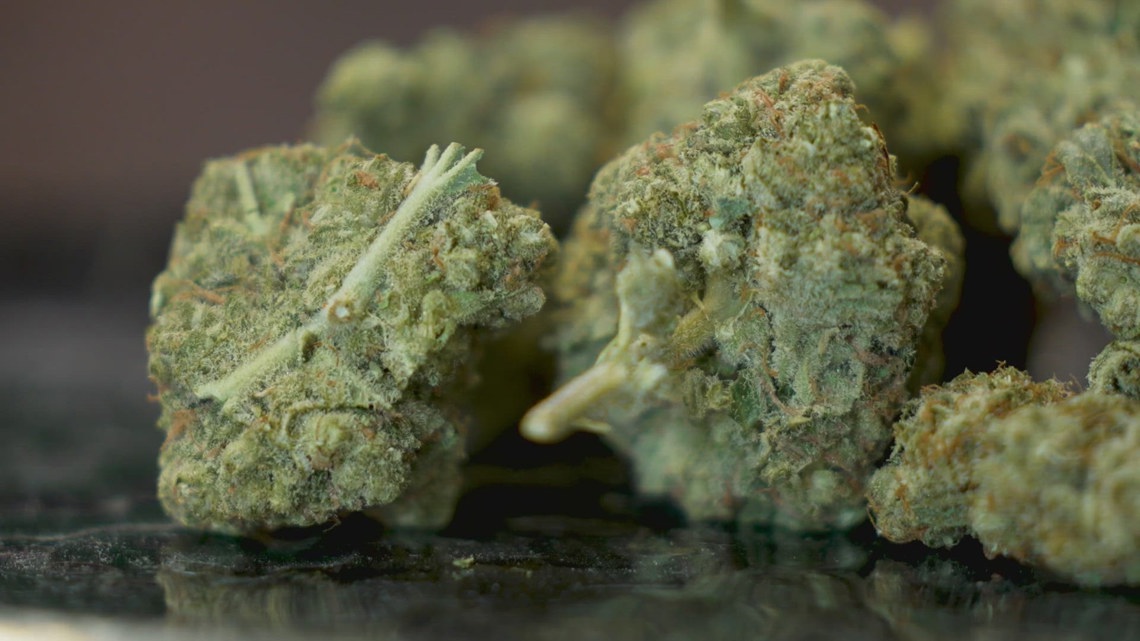DALLAS — Owning a business makes uncertainty unavoidable.
But Texas touts itself as the least risky state in the country to set up shop.
So once hemp became legal, Marine Corps veteran Eddie Velez felt confident enough to quit a long career in emergency management and invest his retirement savings in the fast-growing industry.
He started with a farm first and grew all-natural products without pesticides or chemicals. Then he opened Oak Cliff Cultivators in 2023.
He manufactures and sells consumable and edible products with less than 0.3% THC in them, which is the legal limit in Texas.
But now, the industry he’s deeply passionate about and heavily invested in is presenting more risk than ever.
“It’s nerve-racking but I’m hopeful,” he said ahead of a much-anticipated vote in the Texas House on a total ban of THC.
For much of the session, House members seemed opposed to SB 3, the ban that passed the Senate weeks ago.
It was one of Lt. Gov. Dan Patrick’s top priorities this session. On Monday evening, Patrick posted a video to social media.
“We must ban THC,” he said in the video. “I’m not going to leave Austin until we get this done.”
Patrick holds the fate of major legislation, like school funding, in his hands, and Velez wonders if House lawmakers are feeling the pressure.
The vote on an amendment putting a ban back on the table in the House was delayed twice Tuesday before being pushed to Wednesday.
“We just want a clear path forward where we can operate effectively and not shut down an industry that’s thriving at the current moment,” Velez said.
Patrick held a news conference earlier in the session, inviting families to share stories about synthetic THC harming their children.
“For the first time in my life, I experienced being afraid of my own child,” said Chandel Strickland.
Patrick said law enforcement agencies and medical experts from across the state support a ban.
But some veterans aren’t on board.
Texas VFW Legislative Chairman Mitch Fuller testified in multiple committee hearings about the importance of maintaining access to hemp products, an alternative to prescription drugs.
“Don’t take something away from us that works — and that’s all hemp-derived consumables,” he testified at a hearing.
“We got a lot of veterans who take it for anxiety, to help them sleep,” Velez, who is now the president of the Texas Hemp Coalition, added.
Hemp is estimated to be an $8 billion industry in Texas that directly employs 53,000 people.
A ban would likely shut down about 8,000 stores, including Oak Cliff Cultivators.
“We have a commercial lease signed for five years. I’d have to break my lease,” Velez explained. “We’d have to lay off employees because we would not be able to sell our products.”
He also said there would be a ripple effect — the companies he uses to package his products and the designers he uses to create logos and labels would lose business too.
He made several trips to Austin to lobby lawmakers and felt like he made good headway on a plan he and others supported: limiting sales to people 21 and up, banning synthetic THC sales, and banning any marketing to children.
Then talk of a ban suddenly returned, and uncertainty continues to grow.
“People ask me, ‘Eddie, do you want to move out of state?’ I’m like, no, Texas is home. This is where I was born and where I want to be,” Velez said. “We just want to be able to operate and provide a service to our customers.”


